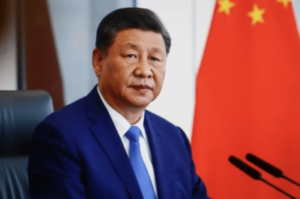$TSLA $LI $NIO
#Tesla #Zeekr #EV #China #Stocks #Market #AutonomousDriving #Tech #Investing #Automotive #ElectricVehicles #AI
Chinese electric vehicle (EV) manufacturer Zeekr, a subsidiary of Geely, is intensifying competition in China’s growing smart EV market by offering its advanced driver-assistance system (ADAS) to local customers for free. The decision underscores the company’s commitment to challenging dominant players such as Tesla and Nio by enhancing the value proposition of its vehicles without additional costs. Zeekr’s move could potentially disrupt the domestic market as consumer demand for semi-autonomous features grows. With the rise of intelligent driving technologies, automakers increasingly see ADAS as a crucial differentiator in attracting buyers. Tesla and other global competitors typically charge a premium for similar features, making Zeekr’s strategy a unique approach to gaining market share.
The move reflects the Chinese EV sector’s aggressive expansion and intensifying price war, where manufacturers are not just cutting vehicle prices but also offering advanced technology upgrades to lure customers. Tesla has consistently led the market with its Autopilot and Full Self-Driving (FSD) software, which come at an additional cost to consumers. In contrast, Zeekr’s strategy of offering these features for free could force other domestic players such as Li Auto and Nio to reconsider their pricing models or introduce comparable incentives. With China being the world’s largest EV market, advancements in ADAS technologies could drive significant sales growth, benefiting companies that successfully leverage these cutting-edge innovations.
From a financial perspective, Zeekr’s parent company Geely is aiming to strengthen its position against foreign and local competitors. By investing heavily in technological advancements and offering advanced features without extra costs, Zeekr is positioning itself as a more attractive option for Chinese consumers. However, this move could raise concerns about profit margins, as offering these services for free may lead to lower short-term revenue. In contrast, Tesla has generated substantial income from software-based services like FSD subscriptions and over-the-air software updates. Investors will be watching closely to see if Zeekr’s approach can translate into higher vehicle sales and increased brand loyalty to offset potential revenue losses.
The broader EV market impact will depend on how other automakers respond to Zeekr’s strategy. If the initiative proves successful, we could see a wider industry trend where automakers shift toward offering free or lower-cost ADAS features to stay competitive. For Tesla, which continues to dominate in the premium EV segment, competition from Zeekr and other ambitious Chinese brands underscores the need to adapt to shifting market dynamics. Additionally, global automakers looking to expand in China may need to rethink their pricing strategies to remain viable. With China leading the EV revolution, strategies like Zeekr’s could reshape consumer expectations about what should be standard in electric vehicles, putting more pressure on competitors to follow suit.










Comments are closed.